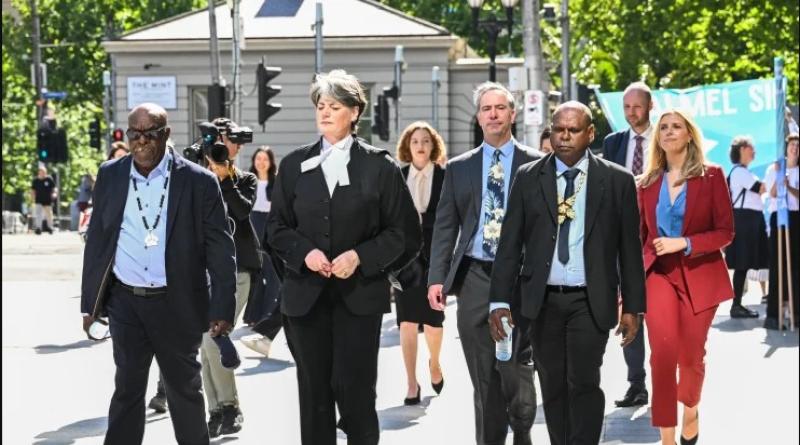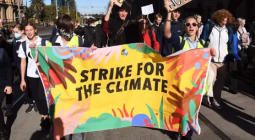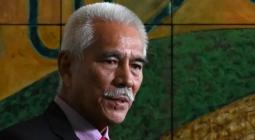‘Where will we go?’: First Nations court bid to force federal action on climate

The first Australian climate court case brought on behalf of First Nations people has heard climate “tipping points” could be reached that would rapidly lead to irreversible changes, such as sea-level rise.
Two Torres Strait community leaders, Uncle Paul Kabai and Uncle Pabai Pabai, have taken the Australian government to the Federal Court, alleging it failed to protect First Nations traditional owners living on the front line of catastrophic climate change.
“Where will we go from here if our islands are underwater?” asked Uncle Kabai outside the Federal Court in Melbourne on Wednesday, before the hearing started. “This is why it is important for us to keep knocking on the government’s door.”
These two Gudamalulgal traditional owners from the remote, low-lying islands of Boigu and Saibai in the Torres Strait say the federal government’s failure to reduce emissions will force their communities to become Australia’s first climate-change refugees.
They allege the climate crisis is causing sea levels to rise, their cultural sites to be washed away and the islands’ soil to be ruined by salt and become unsuitable for growing crops.
In court before Justice Michael Wigney, lawyers for the pair called Emeritus Professor David Karoly from the University of Melbourne to give expert evidence about how the Earth’s temperature and atmosphere interact, and the role of carbon dioxide and other greenhouse gases.
Karoly said that data collected from the Cape Grim weather station, in Tasmania, had shown continuous increases in carbon dioxide concentrations in the atmosphere.
“For the last 2000 years, until major burning of fossil fuels and industrial activity and land clearing, carbon dioxide concentrations remained below 290 parts per million,” he said. That reading is now more than 400 parts per million.
Karoly said examples of tipping points included, for instance, the loss of sea ice around Antarctica or the Arctic, which opened up additional ocean water: “The loss of sea ice is an accelerating process that can accelerate global warming.”
Karoly was questioned by the barrister representing the Australian government, Stephen Lloyd, SC, about whether he was a climate “advocate”.
Karoly said he had been primarily advocating the science of climate change: “If that makes me a climate change advocate, then yes.”
Lloyd asked: “Would you accept it’s not possible for Australia by itself to set any greenhouse gas emissions target or take any other action that would hold global temperatures to 1.5 degrees above the baseline?”
Karoly said that Australia was an important part of global action to reduce greenhouse gas emissions.
Lloyd asked if Karoly was an advocate of using litigation as a way to cause the government to take further action on climate change, noting he had attended a workshop in 2016 on climate litigation.
Karoly said he had attended a number of climate litigation workshops, including one run by the Australian Academy of Science and the Australian Academy of Law, in his role as an expert on the causal links between greenhouse gas emissions and temperature increases.
This landmark Torres Strait climate action is modelled on one of the most successful global climate cases in history, in which the Urgenda Foundation supported 886 people to bring a case in 2015 against the government of the Netherlands. A Dutch District Court ordered the government to cut its greenhouse gas emissions by at least 25 per cent by the end of 2020 (from 1990 levels).
Specialist law firm Phi Finney McDonald is conducting the litigation on behalf of the two Torres Strait men, with support from Urgenda and Grata Fund, a public-interest organisation that supports marginalised people to advocate for their legal rights.






